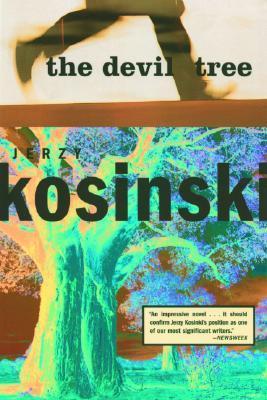
Being There
Book Description
A simple man steps into a world of power, leaving behind a life of solitude but not his childlike innocence. Chauncey Gardiner, known only for his quiet demeanor and obsession with gardening, unwittingly becomes a media sensation, captivating the elite with his enigmatic remarks. As society projects its hopes and fears onto him, the lines between reality and fiction blur. Relationships form, loyalties shift, and the stakes escalate with each encounter. Can a man who knows nothing yield influence over a world that demands everything? In a society obsessed with perception, who truly holds the power?
Quick Book Summary
"Being There" by Jerzy Kosiński is a sharp, satirical novel centered on Chance, later known as Chauncey Gardiner—a simple, sheltered man whose only education has been through television and gardening. When Chance is thrust into the outside world after his caretaker’s death, his naive remarks, interpreted as philosophical insights by the political and social elite, unexpectedly propel him into the limelight. Mistaken for a wise savant, Chance becomes a confidant of powerful figures, including the president, exposing how easily perception can override substance. The novel skewers society’s obsession with media, image, and celebrity, posing provocative questions about authenticity, power, and the blurred line between appearance and reality.
Summary of Key Ideas
Table of Contents
Media and Perception as Power
The novel introduces Chance, a passive, middle-aged man who has spent his entire life in the townhouse of a wealthy benefactor, tending the garden and watching television. With no personal history, formal education, or outside human contact, Chance’s worldview is shaped entirely by TV images and the routines of gardening. When his benefactor dies, Chance is forced into a world he knows little about. His simple statements about gardening, reflecting the metaphors he uses to understand life, are mistaken as profound wisdom when overheard by Eve Rand, wife of an influential businessman.
Innocence Versus Experience
Chance is welcomed into the home of Ben Rand, whose wealth and health make him a focal point of Washington society. As Ben grows fond of Chance, he introduces him to political and media elites. Everyone is captivated by Chance’s calm demeanor and seemingly enigmatic remarks about growth, nurturing, and change. These are interpreted as brilliant political allegories, especially by the President himself, boosting Chance's status as a sage. The media quickly picks up on this new figure, dubbing him Chauncey Gardiner, and spins his accidental utterances into the talk of the nation.
Society’s Need for Meaning
Throughout his rise, Chance remains unaltered—driven by no ambition and lacking any understanding of the forces propelling him forward. The people around him project onto Chance whatever traits and ideas they wish to see, never pausing to question his background or knowledge. The novel uses this collective misinterpretation to satirize the influence of television and media in shaping public perception, as well as the willingness of society’s elite to be swayed by image over substance. Kosiński deftly critiques how power is often wielded by those least equipped for it, simply because they fit into a projected narrative.
Satire of Politics and Celebrity
Chance’s relationships are equally shaped by misperception. Eve becomes enamored with him, imposing her desires and fantasies onto his blank slate persona, while politicians and advisors hang on his every word. These interactions underscore the novel’s themes of miscommunication, projection, and longing for simple answers to complex issues. As both the political stakes and personal attachments intensify, Chance becomes a symbol—his innocence and emptiness allowing everyone else’s ambitions to thrive unchecked.
Ambiguity of Identity
The novel concludes on an ambiguous note, emphasizing the powerful role of perception in determining reality. Chance’s continued ascent seems unstoppable, not through his actions, but through others’ interpretations. The final, symbolic scene blurs the distinctions between fiction and truth, asking whether meaning resides in the speaker or merely in the mind of the beholder. Kosiński’s work is both a biting commentary on media culture and a meditation on identity, authenticity, and the peculiarities of power in the modern world.
Download This Summary
Get a free PDF of this summary instantly — no email required.





